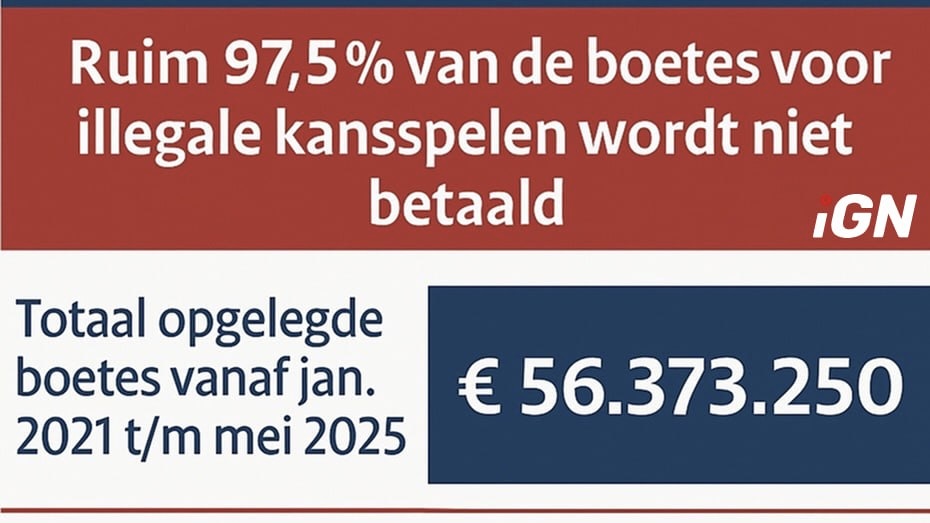97.5% of Online Casino Fines in the Netherlands Remain Unpaid

The Dutch Gambling Authority (KSA) has begun collaborating with commercial debt collection agencies to recover fines from illegal gambling operators.
The Facts: Nearly All Fines Remain Unpaid
Between January 2021 and May 2025, the Kansspelautoriteit (KSA) issued fines totaling €56.4 million. However, only €1.47 million has been recovered—less than 2.5%. That means over 97.5% of fines remain unpaid.
Most violators operate from jurisdictions beyond the KSA’s reach, including Malta, Curaçao, Cyprus, Gibraltar, Costa Rica, and Anjouan (Comoros).
Top Offenders
| Casino | Fine Amount (€) |
|---|---|
| Rant Casino | 19,680,000 |
| Bob Casino | 12,640,000 |
| Videoslots | 9,870,000 |
| WestCasino | 6,790,000 |
| Sons of Slots | 2,070,000 |
Legal Hurdle: Malta’s Bill55
The main obstacle to enforcement is Bill55, a law passed in Malta in 2023. It prohibits the enforcement of foreign administrative and civil decisions against Malta-licensed companies on Maltese territory.
Initially, the bill was thought to apply only to consumer claims. However, it’s now clear that it also blocks the KSA from collecting fines from Malta-registered operators. This weakens the authority of European regulators and undermines mutual recognition of decisions within the EU.
Consequences for Players and Licensed Operators
This legal loophole allows illegal casinos to continue operating without oversight. For players, this means:
- no age verification;
- insufficient safeguards against gambling addiction;
- increased risk of unpaid winnings;
- no legal protection in case of disputes.
Meanwhile, licensed operators face high compliance costs, including:
- strict advertising restrictions;
- a gambling tax hike from 30.5% to 37.8%;
- stringent data protection and player verification requirements.
As a result, many players are drawn to illegal platforms that appear more accessible and less regulated.
KSA’s Response: Turning to Debt Collectors
To tackle non-payment, the Kansspelautoriteit has launched a pilot program in partnership with commercial debt collection firms.
Additional pressure tactics are also being used: the KSA has imposed nearly €27.5 million in penalty orders (dwangsommen), only part of which has been paid. Still, in some cases, these measures have led to the suspension of illegal operations.
Statement from the KSA
Marloes Derks, Senior Spokesperson at the KSA, commented:
We employ multiple strategies to combat illegal operators. In addition to administrative fines, we use penalty orders and act against hosting providers. We’re now testing cooperation with debt collectors. Bill55 limits our short-term options, but its legality is under review at the EU level.
The Way Forward: Joint Action Required
Solving this issue requires a coordinated approach:
- Tech companies (payment providers, hosting services) should stop supporting illegal sites;
- Industry associations must back domain blocking and international cooperation;
- Consumer organizations need to raise player awareness and advocate for consumer rights;
- Licensed operators should report suspicious activity under data privacy regulations.
What Needs to Change at the EU Level
Systemic reforms are necessary to address the current enforcement gap:
- a unified EU directive on mutual recognition of fines;
- national laws enabling access blocks to illegal websites;
- greater transparency regarding operator licensing;
- more staffing and resources for regulators;
- stronger public-private cooperation on tracking and advertising.
Conclusion
Despite the KSA’s efforts, the situation remains fragile. Without EU-level support and industry-wide collaboration, effective control over illegal online gambling is out of reach.
A secure and fair gambling market requires a clear legal framework, cross-border cooperation, and shared responsibility.
